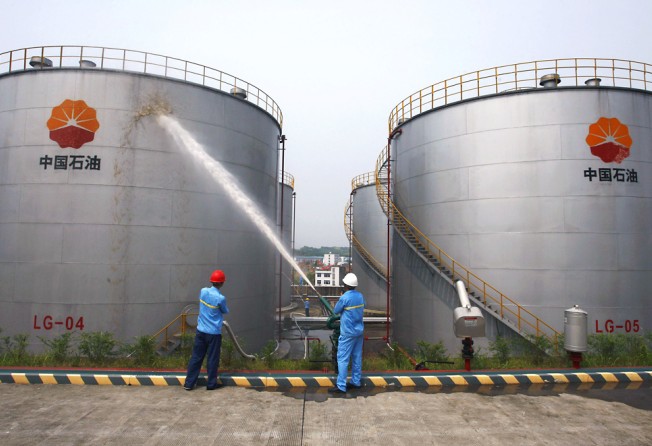PetroChina, Sinopec to seek private capital
Pursuing private capital for oil and gas projects is part of plan to reform monopoly sectors through increased competition and tighter regulation

PetroChina and Sinopec, the mainland's duopoly onshore oil and gas giants, will pursue capital investment from the private sector, the state-backed firms' chiefs said yesterday.
Their gas-related businesses will be a key area for co-operation, they said.
Zhou Jiping, chairman of PetroChina, the country's largest producer of oil and gas, said the move is part of wider industry reform to introduce more competition to enhance efficiency.
"[Beijing] has made it clear about the reform, which is to break monopolies, introduce competition and strengthen regulation," he told reporters before the opening of the annual National People's Congress meeting in Beijing.
Zhou said segments with natural monopolies will be subject to tighter regulation, and where competition can be introduced, regulatory frameworks will be established to guide private-sector participation.
After forming equity partnerships with firms such as asset managers in the western section of its first and second west-to-east gas pipelines, PetroChina will open up the eastern section for investment, he said.
Private capital is also welcome in gas pipelines that it will build, as well as projects to explore unconventional or difficult-to-extract oil and gas, which require more advanced technology and greater capital than conventional projects, Zhou said.
Fu Chengyu, chairman of rival China Petroleum & Chemical (Sinopec), said he plans to give more details about the firm's recently announced plan to sell up to 30 per cent of its fuel marketing division to non-state entities.
The division owns over 30,000 fuel stations, the world's largest network, but the sales and profits per station are low compared with those in developed markets, since high-margin non-fuel sales are at an early stage of development, analysts said.
Fu said natural gas development will also be an area in which Sinopec will co-operate with the private sector.
Meanwhile, Zhou said PetroChina has planned "a relatively significant" cut in overall capital investment for capacity expansion this year, so as to improve profitability, and last year's spending was also under budget, without giving figures.
The South China Morning Post reported yesterday that PetroChina planned to increase the proportion of capital spending on upstream oil and gas exploration and production to between 70 per cent and 80 per cent of the total from this year, up from 57 per cent between 2009 and 2012.
Spending on downstream oil refining and petrochemicals will be cut amid industry oversupply and poor profits.
The firm aims to raise its output of hard-to-extract shale gas from "several tens of million" of cubic metres last year to between 1.5 billion cubic metres (bcm) this year and 2.6 bcm next year, a PetroChina official who declined to be named told the Post.
He also said the firm aims to contain this year's loss from natural gas imports at last year's level of about 42 billion yuan (HK$53 billion).